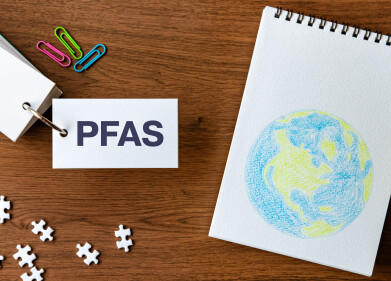HPLC, UHPLC
Chromatography Uncovers Fake Covid Antiviral Drugs
Jun 21 2021
The coronavirus pandemic has shaken the world since the initial outbreak at the start of 2020. Once it became clear that the virus was a serious threat to life across the globe, scientists have worked tirelessly on two broad areas of research – a vaccination to prevent new cases and infections, and drugs to treat infections that have already developed.
The worldwide vaccination effort has come to fruition with a number of vaccines now approved for use – and the rollout well underway in most nations. Unfortunately, when it comes to the drugs to treat COVID-19 infections, efforts are being threatened by fake anti-viral drugs, which have been detected thanks to chromatography…
Favipiravir as a COVID-19 treatment
It’s well documented that many people infected by COVID-19 are symptomless, while others get flu-like symptoms and recover within a week. But when the disease progresses, those symptoms can become more severe resulting in hospitalisation. It’s at this point when treatment is required to alleviate those symptoms for faster recovery, stop the disease progressing and above all else reduce the risk of fatality.
Over the course of the past year, two main antiviral candidates for treatment have been identified – remdesivir and favipiravir. Originally developed to treat hepatitis C, remdesivir is a broad-spectrum antiviral which works to stop the virus reproducing and spreading by mimicking its building blocks.
On the other hand, favipiravir is licenced for the treatment of influenza in Japan. It prevents viral replication in human cells by inhibiting a viral enzyme called RNA polymerase.
Finding fake favipiravir
As one of the worst affected countries during the COVID-19 pandemic, India is naturally top of the list when it comes to demand for drugs to treat the virus. In June 2020, the Drugs Controller General of India (DCGI) approved both favipiravir and remdesivir for restricted emergency use. The approval attracted some criticism given that both drugs were arguably unproven at the time.
One year on, the country has identified its first case of those drugs being faked. Favimax-400 and Favimax-200 tablets, being sold online and locally in Gujarat, were tested using high-performance liquid chromatography (HPLC) and Infrared attenuated total reflection tests (IR-ATR). The latest developments in HPLC technology are discussed in the article ‘Experience and Applications of a New Portable HPLC Machine’.
The tests found no favipiravir content, suggesting that the tablets were actually made from starch. They made it into pharmacies by faking certification from the DCGI and World Health Organization, with pharmacists reportedly at fault for carelessly accepting the certification details
Events
Apr 02 2025 Saigon, Vietnam
Apr 22 2025 Kintex, South Korea
Analytica Anacon India & IndiaLabExpo
Apr 23 2025 Mumbai, India
Apr 27 2025 Portland, OR, USA
May 11 2025 Vienna, Austria














